Effective Diet to Manage Your Diabetes
Sept 04, 2024 | 5 minute read
Living with diabetes requires careful management of your diet to control blood sugar levels and maintain overall health. Here’s a comprehensive guide to help you navigate food choices, exercise recommendations, and more.
Understanding Diabetes and Diet
Diabetes affects how your body processes blood sugar (glucose). Type 1 diabetes requires insulin management, while Type 2 diabetes can often be managed with lifestyle changes, including diet. The goal is to keep blood sugar levels within a healthy range to prevent complications.
Key Principles of a Diabetes-Friendly Diet
- Balance Your Plate:
- Aim for a mix of carbohydrates, proteins, and fats. Carbs affect blood sugar the most, so choose high-fiber options like whole grains, legumes, and vegetables.
- Proteins and healthy fats can help stabilize blood sugar levels and keep you feeling full.
- Portion Control:
- Use smaller plates to help control portions.
- Be mindful of portion sizes, especially for high-carb foods like pasta, rice, and bread.
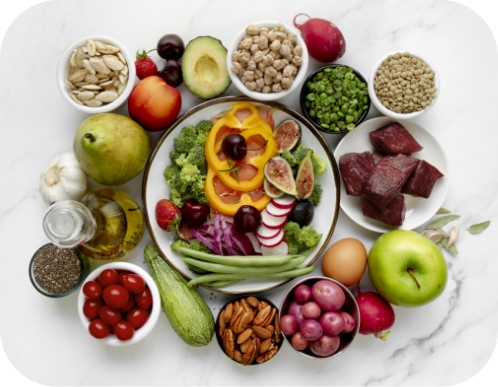
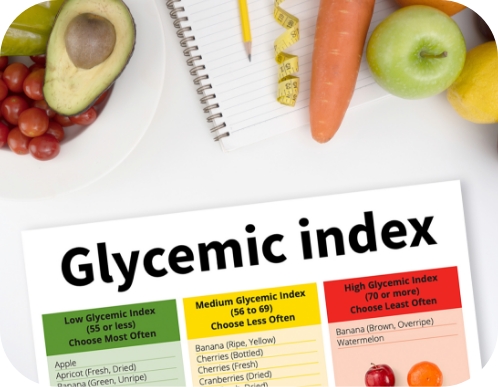
- Regular Meal Times:
- Eating at consistent times each day can help your body regulate blood sugar levels.
- Avoid skipping meals, as this can lead to spikes and drops in blood sugar.
- Low Glycemic Index (GI) Foods:
- Choose foods that have a low GI, which are less likely to cause rapid spikes in blood sugar. These include most fruits and vegetables, whole grains, and legumes.
- Fiber-Rich Foods:
- Fiber helps slow the absorption of sugar and can improve blood sugar levels. Focus on foods like beans, whole grains, vegetables, and fruits.
Understanding Blood Glucose
The first step to managing your blood sugar is to understand what makes blood sugar levels rise.
- Glucose: The carbohydrates and sugars in what you eat and drink turn into glucose (sugar) in the stomach and digestive system. Glucose can then enter the bloodstream.
- Insulin: Insulin is a hormone made in the pancreas that helps the body’s cells take up glucose from the blood and lower blood sugar levels.
In Type 2 diabetes, glucose builds up in the blood instead of going into cells because:
- The body develops “insulin resistance” and can’t use the insulin it makes efficiently.
- The pancreas gradually loses its ability to produce insulin.
The result can be a high blood glucose level.
Track Levels
Healthcare professionals can take blood glucose readings and provide recommendations. If you’re diagnosed with Type 2 diabetes, you will need to monitor your blood sugar level regularly. Fasting Blood Glucose Level, Diagnosis, and What It Means:
| Blood Glucose Level | Diagnosis | What It Means |
|---|---|---|
| Lower than 100 mg/dl | Normal | Healthy range |
| 100 to 125 mg/dl | Prediabetes (Impaired Fasting Glucose) | At increased risk of developing diabetes |
| 126 mg/dl or higher | Diabetes Mellitus (Type 2 diabetes) | At increased risk of heart disease or stroke |
Specific Food Choices for Diabetes Management
Carbohydrates
- Whole Grains: Opt for brown rice, quinoa, whole wheat, and oats. They have more fiber and nutrients compared to refined grains.
- Non-Starchy Vegetables: Fill half your plate with vegetables like spinach, broccoli, and peppers. They’re low in calories and carbs but high in nutrients.
- Fruits: Choose fresh or frozen fruits over canned ones in syrup. Berries, apples, and citrus fruits are good options.
Proteins
- Lean Meats and Fish: Chicken, turkey, and fish are excellent sources of protein without the added fat.
- Plant-Based Proteins: Beans, lentils, and tofu are great alternatives that also provide fiber.
- Nuts and Seeds: These are good for snacks but should be eaten in moderation due to their high-calorie content.
Fats
- Healthy Fats: Include sources like avocados, olive oil, and nuts. Avoid trans fats and limit saturated fats.
Dietary Options for Different Preferences
Vegetarian
- Breakfast: Greek yogurt with berries and a sprinkle of chia seeds.
- Lunch: Lentil soup with a side of mixed greens salad.
- Dinner: Stir-fried tofu with mixed vegetables and quinoa.
- Snacks: Sliced vegetables with hummus, apple slices with almond butter.
Non-Vegetarian
- Breakfast: Scrambled eggs with spinach and whole grain toast.
- Lunch: Grilled chicken salad with a variety of vegetables and olive oil dressing.
- Dinner: Baked salmon with steamed broccoli and brown rice.
- Snacks: Hard-boiled eggs, a handful of nuts.
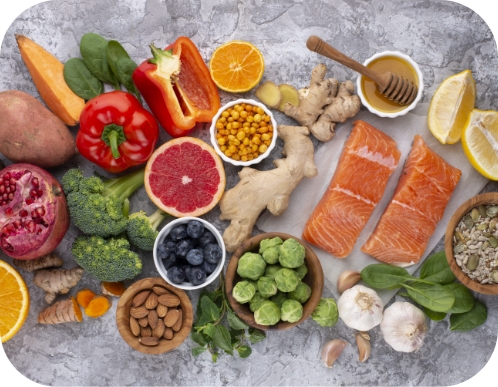
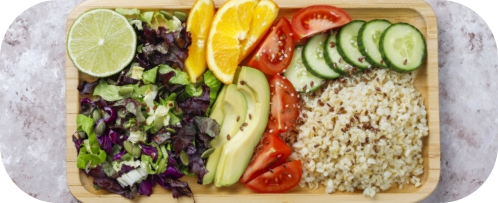
Vegan
- Breakfast: Smoothie with spinach, banana, almond milk, and flaxseeds.
- Lunch: Chickpea and vegetable stir-fry with brown rice.
- Dinner: Black bean tacos with avocado and salsa on whole wheat tortillas.
- Snacks: Fresh fruit, roasted chickpeas.
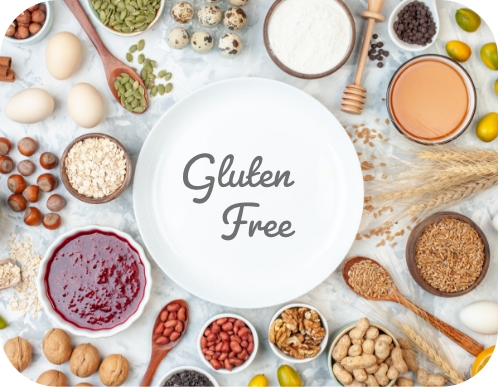
Other Types (e.g., Pescatarian, Gluten-Free)
- Pescatarian:
- Breakfast: Overnight oats with almond milk, topped with fresh berries.
- Lunch: Tuna salad with mixed greens and olive oil dressing.
- Dinner: Grilled shrimp with quinoa and roasted vegetables.
- Snacks: Greek yogurt, mixed nuts.
- Gluten-Free:
- Breakfast: Smoothie bowl with gluten-free granola and fresh fruit.
- Lunch: Quinoa salad with chickpeas, cucumber, and tahini dressing.
- Dinner: Baked chicken with sweet potato and green beans.
- Snacks: Rice cakes with avocado, and fresh fruit.
Seed Benefits for Diabetes Management
Jackfruit Seeds
- Jackfruit seeds are beneficial for diabetics due to their role in reducing inflammation, richness in antioxidants, and high soluble fiber content. These qualities help in managing blood sugar levels effectively.
Sunflower Seeds
- Sunflower seeds are a great crunchy and nutty snack packed with plant compounds and various nutrients. They help fight type 2 diabetes, heart disease, and inflammation.
Pumpkin Seeds
- Pumpkin seeds are rich in iron, magnesium, antioxidants, zinc, and other nutrients that promote heart health and help manage blood pressure and type 2 diabetes.
Maintaining a balanced diet is crucial for effective diabetes management. By understanding how different foods impact your blood sugar and incorporating healthy eating habits, you can better control your condition and enhance your overall well-being.

Alzheimer’s disease Part 1: causes, symptoms, treatment, screening, and stages
Aug 02, 2024 | 5 minute read
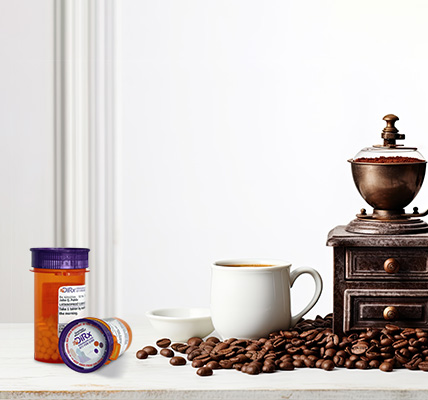
Medications That Don’t Mix with Coffee
In the United States, coffee is more than just a beverage-it’s a beloved daily ritual.
July 2, 2024 | 5 minute read
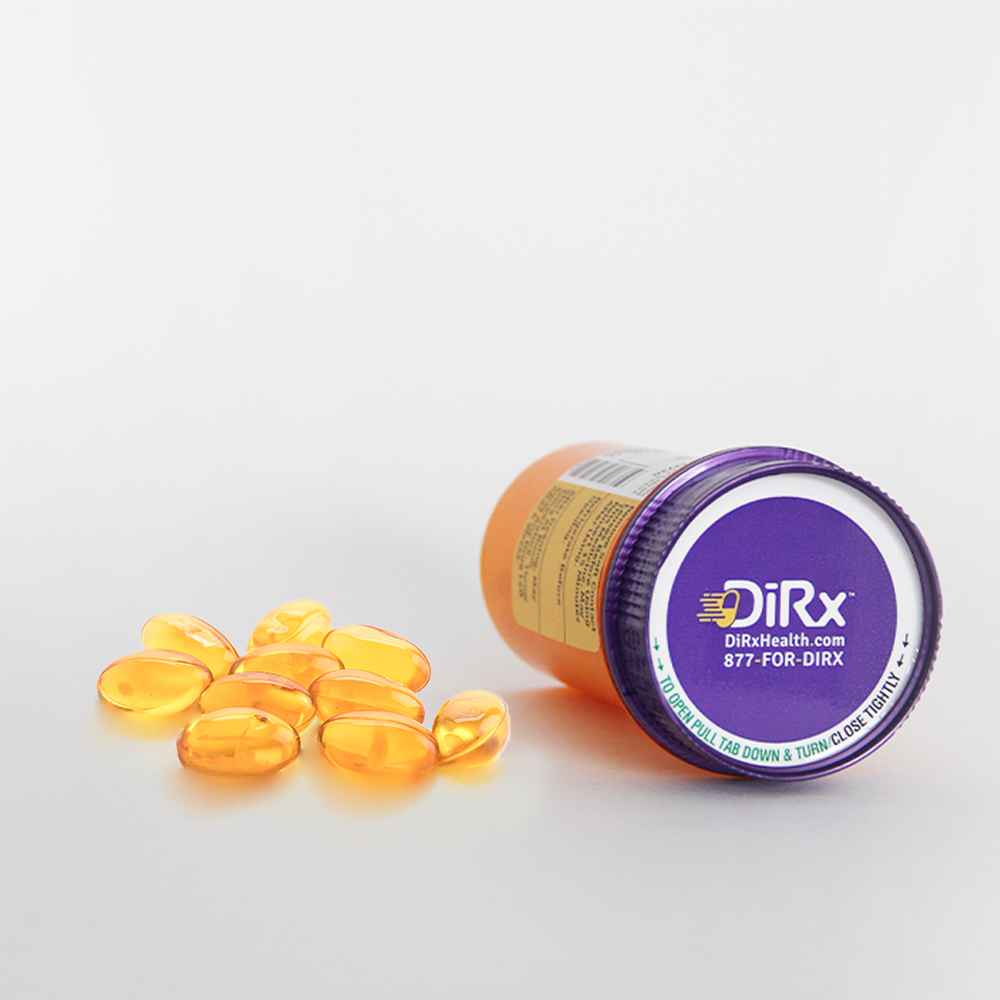
Everything You Need to Know About Benzonatate (Tessalon Perles)
Benzonatate, also known as Tessalon Perles, is a prescription oral medication that helps relieve and suppress cough in patients over the age of ten.
June 25, 2024 | 10 minute read

AI in Healthcare - Part 2: Transforming Healthcare with Artificial Intelligence
The integration of artificial intelligence (AI) in healthcare is revolutionizing the industry.
June 17, 2024 | 5 minute read

Men's Health Matters! Age-Wise Checkups & Screenings You Need
Taking charge of your health is an empowering journey, and preventive care is the cornerstone.
June 10, 2024 | 10 minute read

AI in Healthcare - Part 1: The Future of Medical Diagnosis & Treatment
Imagine a world where robots perform surgery, AI diagnoses diseases with superhuman accuracy, and virtual assistants manage your medications.
June 3, 2024 | 5 minute read

Women’s Health FAQs Answered: A Comprehensive Guide
As a woman, taking care of your health should be a top priority, but it’s common to have questions and concerns. That’s why we’ve compiled this comprehensive blog to address some of the most frequently asked questions around women’s health
May 22, 2024 | 10 minute read

Understanding Euthyrox® (Levothyroxine): Your Comprehensive Guide to Thyroid Health
May 15, 2024 | 5 minute read

Prioritising Heart Health: A Vital Guide for Women in America
In the bustling rhythm of American life, women often prioritize everyone else’s health over their own. Yet, here’s a sobering fact: heart disease is the leading cause of death among American women, surpassing all types of cancer combined.
May 3, 2024 | 5 minute read

Your guide to Healthy Living:
Managing Diabetes
Whether you’ve recently been diagnosed or have been living with diabetes for years,
Feb 19, 2024 | 5 minute read

Understanding a Drug’s Journey to Generic Production
In today’s healthcare landscape, the rising costs of prescription medications have become a significant
July 18, 2023 | 3 minute read

Revolutionizing Women’s Healthcare: Empowering Women’s Health with DiRx
Here at DiRx Health, we’re on a mission to empower women to take control of their health and well-being.
March 8, 2023 | 5 minute read

Five reasons every woman needs an annual visit with a primary care provider
May 10, 2022 | 3 minute read

Get relief from pollen allergies
Learn ways to help prevent pollen allergies and how to ease the symptoms
July 18, 2023 | 3 minute read
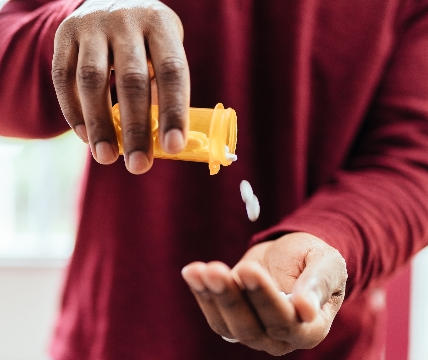
Introducing Kyzatrex: A safe, effective and painless option for Testosterone Replacement Therapy
Aug 14, 2023 | 4 minute read

Counting the Cost
The Financial Burden of Living with Chronic Conditions
May 16, 2023 | 3 minute read
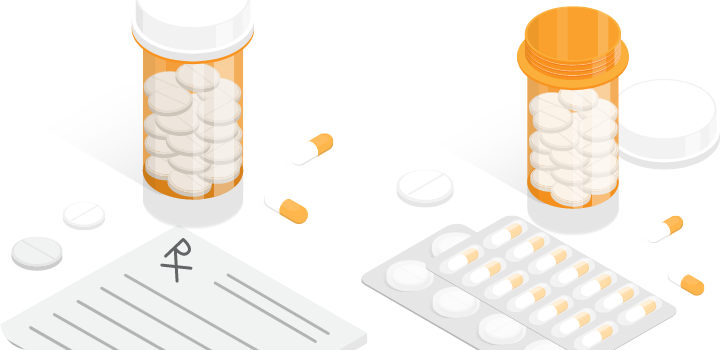
3 ways to make filling a prescription easier
If you wish your pharmacy experience was a smoother and more pleasant one, here are a few ideas that can help
April 11, 2023 | 3 minute read

For the Love of Black History
Striving for a healthier future through accessibility
February 14, 2023 | 4 minute read

Falling out-of-network with your pharmacy
Why this happens and protecting your bottom line
December 13, 2022 | 5 minute read

Take control of your personal healthcare decisions
Options to consider for the new year
November 14, 2022 | 5 minute read
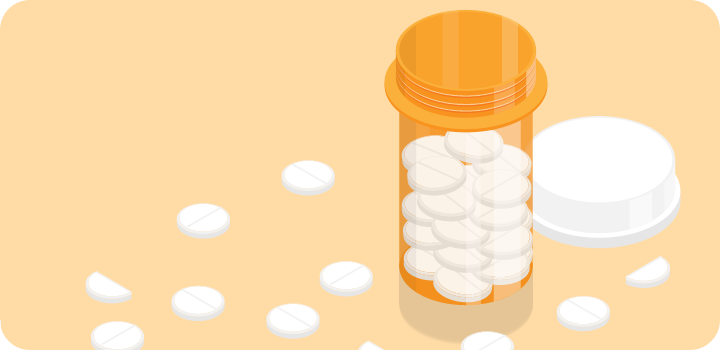
How parents can lighten the impact of the impending Adderall shortage
Tips from our DiRx Pharmacy Team
October 18, 2022 | 2 minute read

The HSA, HRA and FSA – understanding the difference
Are you taking full advantage of your benefit?
October 03, 2022 | 2 minute read

A pharmacist's perspective on the challenges patients are facing today.
An interview with Rima Arora, PharmD, RPh, Director of Pharmacy at DiRx
August 24, 2022 | 4 minute read

What can we do about the soaring cost of prescription medicine?
An interview with Satish Srinivasan, DiRx Founder and Chief Executive Officer
July 22, 2022 | 6 minute read

Is a prostate cancer screening right for you?
Learning more about prostate cancer screening risks and benefits can help you decide if it's right for you
June 8, 2022 | 4 minute read

How Safe is your prescription information online
Your prescriptions are part of your protected health information. Understand how it is used, shared and protected
May 25, 2022 | 3 minute read

Choosing an online pharmacy you can trust
Not all pharmacies are the same. Choosing one that you can depend on with your medicines and your health are important
April 13, 2022 | 3 minute read

5 reasons that choosing an online pharmacy may be right for you
Lots of people are discovering the benefits of choosing an online pharmacy for their prescription drug needs
March 30, 2022 | 3 minute read

Should you consider switching from brand-name to generics?
Being an informed healthcare consumer includes doing your homework when it comes to making decisions
March 16, 2022 | 3 minute read

EUTHYROX®, a branded
Levothyroxine is also available.
Tap here to know more
Buying Kyzatrex for the first time?
Use code FREETRIAL to get a 1 month supply of Kyzatrex for FREE






